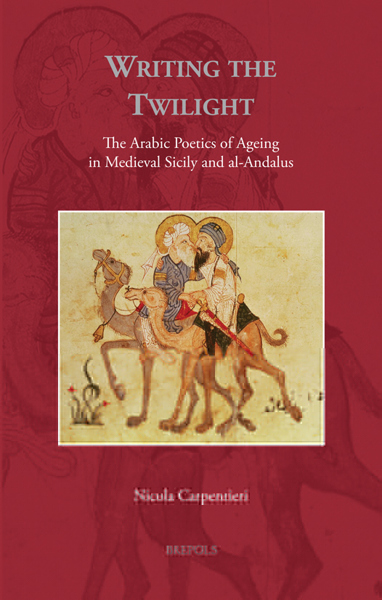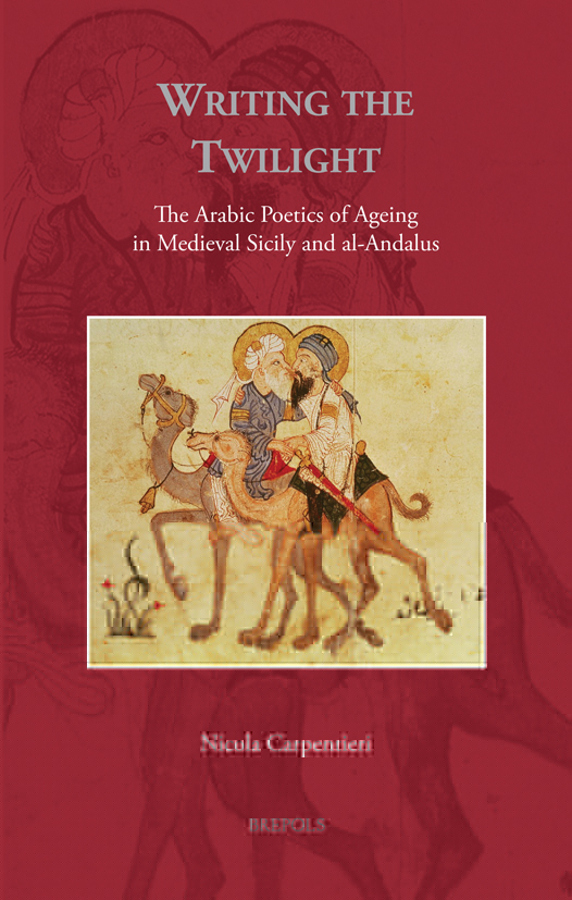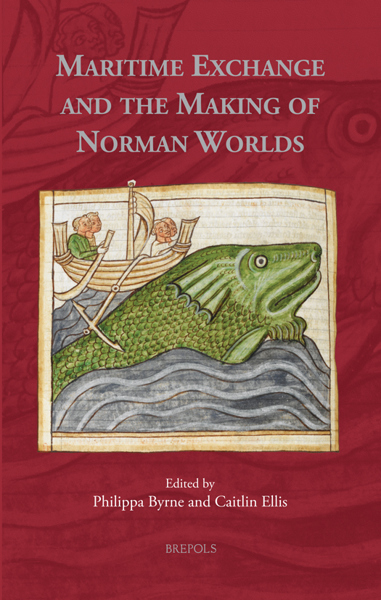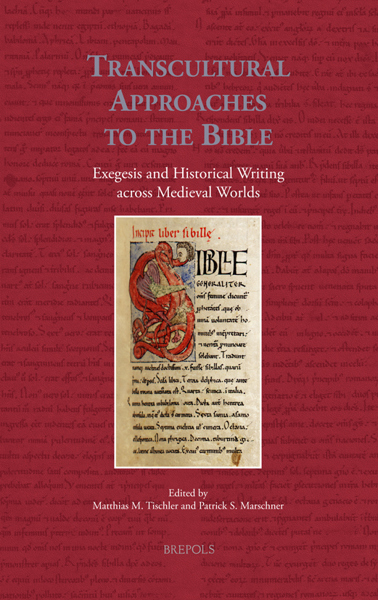
Writing the Twilight
The Arabic Poetics of Ageing in Medieval Sicily and al-Andalus
Nicola Carpentieri
- Pages: x + 190 p.
- Size:156 x 234 mm
- Language(s):English, Arabic
- Publication Year:2023
- € 70,00 EXCL. VAT RETAIL PRICE
- ISBN: 978-2-503-60053-6
- Hardback
- Available
- € 70,00 EXCL. VAT RETAIL PRICE
- ISBN: 978-2-503-60055-0
- E-book
- Available
"Nicola Carpentieri’s Writing the Twilight: The Arabic Poetics of Ageing in Medieval Sicily and al-Andalus is a beautifully written and expertly researched study (...), a highly commendable and insightful work that makes a significant contribution to numerous academic fields, including transcultural medieval studies, comparative literature and culture, Arabic-Islamic studies, North African studies, Iberian studies, Mediterranean studies, Sicilian-Italian studies, and studies of memory and loss, among others." (Nizar F. Hermes, in The Medieval Review, 02/12/2024)
"This wonderful book brings readers close to two poets, men of advanced age living in the waning years of two Western Mediterranean Islamic polities.(...) There is much to discover here about aging, as both a process of growing old and as an occasion for reflection. But even more, this is the sort of book that codgers like me hope that students will take up and learn from. Nicola Capentieri invites readers to consider the writing craft, even when employed in late life, as a tool for personal expression and political change. Beyond wrinkles and white hair, the book illuminates the social complexities of eleventh-century Dar al-Islam, including the engagement of two individuals coming to grips with a life of loss and a world of unrelenting politics." (Michael Vargas, in Mediaevistik, 37, 2024, 191)
Nicola Carpentieri graduated summa sum laude from Ca' Foscari University and obtained his Ph.D. from Harvard University in 2012. He is the author of over 60 titles between peer-reviewed articles, edited volumes, scholarly editions and book reviews. He has been the recipient of numerous grants and awards, and has been an invited speaker at prestigious venues such as Harvard, Brown and Humboldt university. He currently works at the University of Padova, Italy.
In the eleventh century, as Muslim sovereignty in the Western Mediterranean was eroded by both internal divisions and external attacks, Sicily fell to the Normans. At the same time, al-Andalus fragmented into a series of small kingdoms that were then picked off by powerful conquerors. Against this backdrop, Arabic poets made use of their craft to try and explain the changes in their world. Among them were the Andalusian Abū Ishāq and the Sicilian Ibn Hamdīs, both of whom wrote vividly about their own ageing and mortality, as well as about the broader twilight of the worlds they knew.
Taking these two protagonists as its starting point, this extraordinary volume explores how Abū Ishāq and Ibn Hamdīs, despite their different locations, both made use of poetry. For them, it was a tool to confront their mortality, lament their own physical decay, and appeal to their age and experience, as well as a way of juxtaposing their concerns with the political and social dismemberment of their wider societies and the need for a restoration of world order. The result is also a broader discussion of the relationship between poetry and politics in Maghribī Islam, and a reminder of poetry’s importance as a medium to engage with the world.
Acknowledgements
Introduction. A Poetics of Ageing
Chapter One. The Twilight of Arabo-Muslim Hegemony in the West: The Rise of Abū Isḥāq and Ibn Ḥamdīs as Political Poets
Chapter Two. The Poetics of Ageing: Al-Shayb wa-l-shabāb as a Poetic Motif
Chapter Three. A Poetics of Loss: The Elegies
Chapter Four. The Poetics of Withdrawal: Ascetic Verse
Conclusion
Bibliography
Indices



